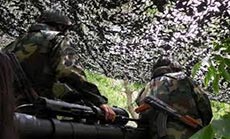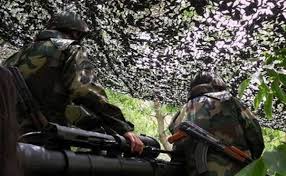Hizbullah from a Fighter to a Mediator: from Geneva to Dahiyeh

NahedHattar - al-Akhbar newspaper
Hizbullah Secretary General, Sayyed Hassan Nasrallah, has, in a nutshell, determined the very signification of the achievement scored through holding the Syrian presidential polls; we have now a new political reality" President Bashar al-Assad, the winner of those polls regardless of the percentage, is today the headline of the political solution in Syria.
 Therefore, those who are serious among the national oppositionists must give up on their 2011 speech and instead integrate in a national political process to agree on a reformist plan, whose ceiling is Bashar al-Assad, and whose content is inter-Syrian, without shrugging off Hizbullah's clear insinuation of its readiness to play the role of the mediator, the party having now become practically part of the Syrian regime.
Therefore, those who are serious among the national oppositionists must give up on their 2011 speech and instead integrate in a national political process to agree on a reformist plan, whose ceiling is Bashar al-Assad, and whose content is inter-Syrian, without shrugging off Hizbullah's clear insinuation of its readiness to play the role of the mediator, the party having now become practically part of the Syrian regime.
Hizbullah has many ideas and visions that are still kept from the media but that can be discussed with the opposition and the regime in Syria. It is clear that Nasrallah did not give that hint without a [previous] agreement with the Syrian command, so that the party moves from the position of the fighter to that of the mediator. It has already played that role in partial local reconciliations and it is ready today to assume the same role on the political level.
In essence, Nasrallah proposes "Dahiyeh I," instead of Geneva III. It is now up the Coordination Committee, the State Building Movement, the Liberation and Change Front, and other national opposition to decide on this proposal. Did these parties receive the invitation? Have they started to get convinced that the possible and efficient path to the national democratic political solution in Syria passes in the southern suburb? Will they seize this historic opportunity or will they resort to marginalization, whereas there is no other political horizon before them but to start a serious dialogue that has become plausible and perhaps guaranteed by Sayyed himself?
It is remarkable that the forces of the national opposition have set themselves apart from the Coalition and its partners pertaining to the Syrian presidential polls and the new political facts they have produced. Head of the Coordination Committee, Hassan Abdul Azim, admits, for the first time, that al-Assad has a movement of supporters and that there is a movement that is on the fence, keeping neutral waiting for things, while the State Building Movement has indeed recognized the results of the elections and said that the solution must be based upon a constitutional declaration that limits and then distributes the powers of the president among the state institutions, in addition to an extended government with the participation of all the sides of the political opposition and the independent. As a matter of fact, this is an entire political program, a reasonable one, which can be mediated upon. For his part, head of the Liberation and Change Front, former Minister Qadri Jamil, despite his cleaving to the international solution, is already close to the Syrian state.
What does Nasrallah hold in his pocket? it was clear in his speech that he has a vision, nay a tangible vision on the horizons of the political solution in Syria; it is clear that the land is threatened and perhaps the next steps will be faster than we think so as to take advantage of the political and popular momentum resulting from the real success of the Syrian presidential elections.
How about the local fighters at what is left of the armed opposition sites--and we don't mean the terrorist groups? Nasrallah's message mirrors what is happening on-the-ground is simple and conclusive at a time: throw your weapons and come to reconciliation. The war is over; there is no need of free battles.
Nasrallah's words now are very valuable to all the national oppositionists.
Comments




